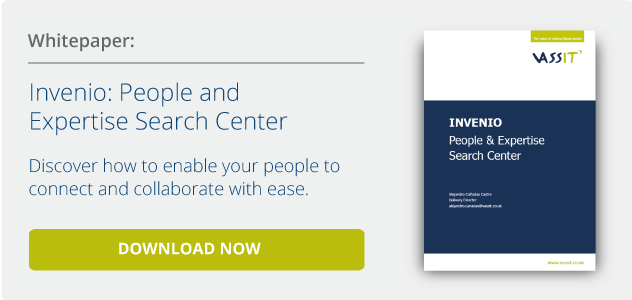It's easy to get drawn into the technology and process aspects of your organisation's knowledge management strategy, after all, those are your back yard.
As CIO however, you have the power to ensure that the third, and most challenging perspective of KM, namely people, is properly mobilised.
Information vs. knowledge
Processes and technology solutions that enable the systematic capture, development, sharing and use of information are an essential element in KM strategy, but they only scratch the surface of an organisation's knowledge. You see, only a small proportion of your organisation's collective knowledge will ever exist in explicit, information form - the form that can be easily stored, catalogued and distributed. The vast majority remains in tacit form, known but not codified, in the minds of your people.
Therefore, in order to achieve its full potential, your organisation requires the means for people to share knowledge, not just information. This can only be possible when people know who has the knowledge they need
Finding the right people
In any enterprise there will be people who have not met or do not know each other well. In any global enterprise, it may be impossible for these people to ever physically meet. Finding the right people within such enterprises has always been difficult, often relying upon chance as much as any formal process.
Davenport and Prusak1 sum the challenge up neatly, by saying "Water-cooler exchanges are also hit-or-miss in terms of dealing with a particularly business problem or making a key decision. When faced with a need for specific knowledge at a critical point in a project, it would not be a sensible strategy to stand by the water cooler in hopes of picking up exactly what you are looking for from whoever happens to be thirsty". They go on to make the point that while serendipity is an important source of valuable ideas, it can't be relied upon as medium for knowledge exchange.
Thus creating systems that support the exchange of tacit knowledge between people is a key step in corporate knowledge management and this is where the concept of the expert directory comes in.
The role of the expert directory
The role of the expert directory is to provide a tool, or rather a place, typically on the company intranet, where people go to discover which others hold the knowledge required to achieve business objectives.
To perform this role, the expert directory has to go above and beyond presenting the simple contact data that resides within existing identity directories, such as Active Directory and LDAP servers, paring it with information about people's skills, expertise, qualifications and experience. This information could be explicit, entered by the users themselves, or implicit, derived from other information attributed to individuals throughout the organisation's knowledge management universe.
In addition, in order to be effective, it might be necessary for the expert directory solution to integrate and unify the data from multiple existing, often different, identity and information repositories including Active Directories, LDAP servers, business systems (ERP, CRM, leagacy applications, etc.) and many more. Considerations include how to connect with each repository, how to avoid costly duplication of data and what rules are applied when cataloguing or tagging data.
The wider ECM strategy
The final piece of the puzzle, as hinted at earlier, is making the expert directory available, accessible and easy for people to use. In most cases this means making it a part of an employee portal or intranet platform although it is important to also consider how people connect with the directory when off the company network or on mobile devices and how they maintain their own information.
Given how the worlds of web content, information and knowledge management are increasingly integrated under the banner of enterprise content management, this is probably where the expert directory should exist.
Conclusion
So, implementing an expert directory certainly requires you to overcome so challenges, both technical and human. Do so however and you will enable your organisation to access the vast amounts of knowledge that hasn't yet made it to information format. As a result, teams will be able to form that can deliver business objective quicker and more successful with fewer costly mistakes. And, at the same time, you can drive greater ROI from investments made in other ECM areas.
For a proven expert directory solution 'in-a-box' that can be deployed on most leading portal or CMS platforms, take a look at our Invenio whitepaper.
1 Davenport, Thomas, Laurence Prusak. Working Knowledge. (2000) Working Knowledge. Harvard Business School Press, 2000.


